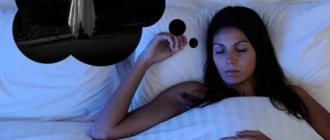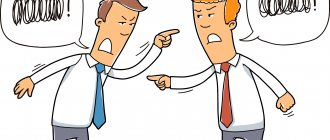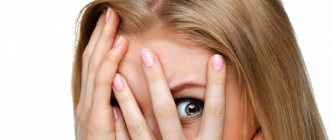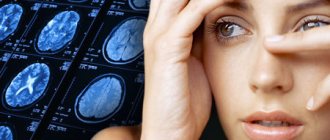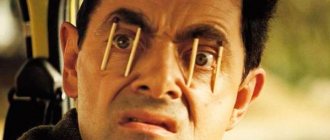Very often, patients suffering from frequent night awakenings turn to a somnologist, or in his absence, to a psychiatrist or neurologist. Typically, the state of waking up is associated with neurological, psychiatric or general somatic diseases. Also, this type of sleep pathology is a constant companion of citizens who abuse alcohol or drugs. All kinds of stress and seasonal depression play a major role in the development of sleep disorders.
Frequent awakenings at night in themselves are not a problem that causes serious harm to health. However, people, as a rule, take this too seriously, and instead of continuing to sleep peacefully, they begin to worry, think about how to fall asleep, and look for the reason for the interruption of sleep, which leads to loss of sleepy state. However, ordinary simple relaxation is the most correct behavior, as a result of which a person falls asleep and almost completely gets enough sleep.
TYPES OF SLEEP DISORDERS
Stories about painful night wakefulness or about “life without sleep” are often only subjective ideas of a person. He may not remember at all how he “fell” into sleep. This is confirmed by a polysomnographic study, which records several parameters, including periods of dreams. Therefore, the concept of “insomnia” (i.e. “no sleep”) is not entirely appropriate. Experts use the concept of “insomnia” as a subjectively felt lack of sleep (or poor quality) of sleep, which leads to disruption of daytime activity. Insomnia comes in different forms:
- Presomnia disorders, when it is difficult to fall asleep. The normal period of falling asleep does not exceed half an hour. In case of presomnia, a person intends to fall asleep, he goes to bed tired, but obsessive thoughts come, and with them the inevitable cheerfulness. It is beyond volitional control.
- Intrasomnic disturbances, or problems within sleep. One of the manifestations is interrupted sleep or frequent awakenings at night. However, here it is necessary to draw a line between “good and evil.” A person can wake up and go to the toilet several times a night, but not experience discomfort and fatigue in the morning. Where is the line when waking up will really be a disorder?
Attention! Night awakenings in women and men, if they affect daytime activity and reduce quality of life, will be a manifestation of chronic insomnia. There is a time parameter when a condition is considered pathological. There should not be a total of more than 30 minutes of awakenings per night.
- Postsomnia disorders or early waking up towards the end of the night, in the morning. It’s dark outside, maybe it’s just dawn, but the man has already woken up. There is still a lot of time before getting up, and it would be nice to fall asleep, but this is not possible. The disorder is more common in patients with depression.
- Parasomnias are pathological behavioral reactions associated with the sleep process. Episodes of somnambulism in children and adolescents, leg cramps at night in adults, night terrors, sleep paralysis, sexsomnia are not all pathological phenomena associated with sleep. Older adults may develop REM sleep behavior disorder, which involves a variety of movements, jumping out of bed, sleep talking, or screaming. Nocturnal eating disorders are more common in women. These are repeated involuntary bouts of eating during sleep. It is difficult to wake a person during an attack, and trying to stop it causes aggression. After waking up, everything is forgotten, and only the devastation in the kitchen or a face smeared with chocolate helps to remember some details.
- Hypersomnic disorders accompanied by increased daytime sleepiness and increased sleep duration. They are less common than others.
There is another type that everyone encounters throughout their lives - acute sleep disorder. This is the nervous system's response to any strong emotion. Happiness or grief can activate the part of the brain responsible for emotions - the amygdala. It creates a persistent focus of stimulation that even at night a person cannot fall asleep. Usually, after the stress factor stops, everything returns to normal. But sometimes acute insomnia can turn into chronic.
How to fall asleep again
The body must rest fully. The best time for this is night. But if sleep is interrupted, you need to know how you can fall back to sleep quickly.
Aimless stay in bed only harms. It is better to use the following methods:
- Get distracted by something you love. A few minutes of doing something you enjoy (embroidery, reading, knitting, etc.) will help you get tired faster and fall asleep again.
- Get some fresh air. Going out onto the balcony or street in the middle of the night will allow you to cool down a little. After this, you will want to return to a cozy bed and fall asleep.
- Don't look at the alarm clock. With constant monitoring of the time remaining for rest, psychosis develops. Returning to sleep in such a situation is problematic.
- Leave the room, turn on the light. Return in 10-15 minutes, but the room should be as dark as possible.
- Start meditating. It will be good to sit in the “lotus” position and relax.
- Drink warm milk or tea with honey. Herbal supplements include thyme, chamomile, mint, and linden.
- Take a mental break. Even if your soul is restless, a difficult day lies ahead, you need to mentally imagine its successful completion. A few positive fantasies will help improve your mood and fall asleep.
MYTHS AND FACTS
MYTH: Women are more likely than men to suffer from sleep disorders . This is partly true, but only on an emotional level. A woman more often voices her problem, comes to the doctor with a complaint and leaves with a diagnosis of insomnia. Conducted scientific studies indicate that there are no gender differences in sleep duration. Moreover, women have more deep sleep and sleep better. A man may suffer from a sleep disorder, but he consults a doctor less often with such a complaint.
FACT: Intermittent sleep and insomnia are more dangerous for women . For both sexes, lack of sleep threatens the development of hypertension and diabetes, an increased risk of mental disorders, and decreased immunity with frequent colds. However, women have a sharply increased risk of developing tumor diseases. This was proven in the example of nurses working night shifts, who were 1.4 times more likely to have breast tumors.
MYTH: “You have to work more and you will sleep well . It is not always so. Hyperactivation of the nervous system, as in “manager syndrome,” prevents you from relaxing and sleeping peacefully at night. Most often, awakening occurs in the morning. However, if you lie quietly without getting out of bed, you will still be able to get some sleep.
FACT: Exercise helps you sleep better at night. Exercising before bed will not be beneficial, but moderate physical activity during the day will stimulate education
adenosine – a “fatigue signal” for the body. Cardio, strength training, and yoga are suitable. The main thing is to choose the right time!
MYTH: People sleep less as they age . This is not entirely true. The duration of sleep for each person is genetically determined and on average is about 7-8 hours. In older people, genes do not disappear, but many other reasons appear that disrupt sleep (illness, change in social status, different daily routine).
FACT: As you age, your daily cycle shifts . In older people, a feeling of drowsiness may appear as early as 20.00. If you fall asleep at this time, it is quite normal to wake up at 3-4 in the morning. And this cannot be called post-somnia disorder.
MYTH: You can’t sleep in reserve . Conducted scientific research confirms the opposite. Two groups of people slept 4 hours a day for a week. One group, a week before the experiment, had the opportunity to sleep a couple of hours longer than usual, the other slept according to their usual schedule. The best test results were shown by precisely those people who had plenty of sleep. So it’s quite reasonable to compensate for the lack of a week’s sleep on weekends.
Rise from 21.00 to 23.00
Few people experience problems with painful insomnia at this time, since most people go to bed no earlier than 10 p.m. The causes of insomnia at such an early hour can be various malfunctions in the cardiovascular or endocrine systems. Loss of sleep during this time can also cause extreme stress or fatigue.
Discomfort can also be associated with external irritants: stuffiness, noise, dry or very humid air. If you can’t fall asleep in the evening, somnologists advise ventilating the room, taking a relaxing bath or taking a walk. A humidifier will be a useful purchase that will improve the quality of your night's rest.
How our body works day and night
Why do people wake up during this period, who seem to be sleeping in a very comfortable bed and in a cozy room?
The answer to the question may be the individual biological rhythms of a person.
Perhaps you are a typical night owl, and you force your body to rest when it needs activity. Try changing your schedule by moving your wake-up time slightly if possible.
CAUSES OF NIGHT AWAKENINGS: TRADITIONAL VIEW AT THE PROBLEM
There are several established ideas about the development of sleep disorders. According to the first, earliest everyday theory , insomnia is the result of improper behavior or daily routine. Due to overstimulation of the nervous system, a person cannot fall asleep or sleep normally during the night. The mechanism really works, especially for children and teenagers playing computer games. However, it does not explain why an adult living according to a regime cannot get rid of night awakenings. The next theory views insomnia as a manifestation of mental illness , depression or anxiety disorder. At one time, doctors began sending people suffering from insomnia to a psychiatrist, which even reduced the number of complaints. People did not want to be “attributed” to any mental disorder. The innate brain hyperactivation theory explains sleep disturbance in a group of people who have increased stimulating brain activity.
During the day, their brain works too actively, which is confirmed on the EEG by a large number of fast rhythms. They can concentrate easily, respond better to circumstances, but by nightfall they cannot fall asleep for a long time or suffer from interrupted sleep. Another mechanism for the development of insomnia is associated with the peculiarities of perception of the time of wakefulness during the night. Normally, a person can wake up several times during the night; he needs to turn around so that his body does not go numb. By morning, waking up episodes are usually not remembered. For people with altered perception of time, the opposite is true. They do not remember how they fall asleep and how long they sleep, but they are good at recording periods of wakefulness. By the morning, these periods merge in memory at one time, and it seems to the person that he did not sleep at all.
Regardless of the mechanism by which the sleep disorder developed, there are trigger factors - reasons that force you to wake up at night. They can be functional, easily solved, or more serious, requiring medical attention. Sometimes it is difficult to understand the cause-and-effect relationships, because insomnia can be both a trigger and a symptom of the development of the disease.
Functional causes of frequent awakenings at night
Poor sleep hygiene
Lack of conditions for a good night's rest can lead to repeated waking up. There are several rules for maintaining healthy sleep:
- Determine how many hours of sleep you need. To do this, find out your chronotype. Watch yourself, for example, on vacation days. Turn off the alarm clock and sleep as long as you want. After a few days, the body will return to its biological rhythm. For some, the usual seven hours of sleep is enough, while others need all ten.
- Choose the same time to fall asleep and wake up. Every day, hourly, regardless of weekdays or weekends. A sleep schedule must be maintained to create conditioning.
- Cozy atmosphere in the bedroom. Ventilate the room at night, maintain a comfortable temperature (18-20 degrees) and humidity (50-70%). Don't forget about a comfortable mattress, bed linen and nightwear. None of the above should cause discomfort.
- Time in bed is only for sleeping! Leave your laptop, tablet, food, even reading books outside. Moreover, you should not fall asleep while watching movies or watching TV, as with any other source of sound or light. Light disrupts the production of melatonin, which ensures sleep, and sound will be processed by the brain, interfering with the onset of deep sleep.
- Try to stay active during the day and stay awake during the day. Before going to bed, avoid stimulating factors (physical activity, food, liquid). Remove the clock from the bedroom. As soon as you look at them the next time you wake up, your brain will start counting the remaining time before getting up, that is, it will start working. Its active centers will again seize power over the sleep center. But it is impossible to force yourself to fall asleep by force of will.
Emotions
Emotional upsurge, worry about any reason, a quarrel or domestic conflict - having begun in a waking state, they will continue to act during sleep. The activating brain systems work and disrupt the normal sleep structure. This can continue for several days, depending on the strength of the stress and the compensatory capabilities of the person himself. Sometimes stress can persist, as in hopeless situations or with weak anti-stress protection. Then frequent nighttime urges can become a chronic phenomenon.
Shift work
Night work is a direct cause of the development of chronic insomnia. The fact that it is harmful to physical and mental health has been proven by scientific research. It is in our genes to stay awake only during the day and nothing else. People who work on non-standard schedules (shifts, evenings, weekends) also have their natural circadian rhythm disrupted. It’s not for nothing that I.P. Pavlov called sleep “the lifesaver of the nervous system.” The only exception to the general rule would be night owls. Their biological clocks are delayed, and their hormone production peaks are also shifted. They are active in the evening and at night, and in the morning they like to sleep. If night work is regular, then it may well fit into the “owl” rhythm of life without harm to health.
Alcohol, coffee, nicotine
Alcohol will help you fall asleep faster and fall into deep sleep only in the short term. In the long term, it changes the structure of sleep, depriving it of the most productive rapid stage. In addition, after drinking at night, you can expect an alcoholic awakening. This is a “rebound of wakefulness” that occurs when the body processes alcohol (sleep soundly, but briefly).
With coffee insomnia, things are a little different. Caffeine is a debilitating psychostimulant. If you are not a “coffee lover,” then after a cup of drink before bed, you are guaranteed several hours of additional wakefulness. The opposite effect can be obtained if the drink is abused. The nervous system is already exhausted, and another cup will make you fall into the pillow ahead of time.
Frequent urges at night occur when a person has decided to quit (withdrawal syndrome). Nicotine also impairs the quality and shortens the duration of sleep. Smokers often wake up at night.
Physiological hormonal changes in women
Hormones regulate biorhythms. Hormonal changes are an integral part of a woman’s life. At 45-50 years of age, menopause occurs, and every second woman experiences frequent urges at night. An increasing deficiency of estrogen, as well as melatonin, leads to an increase in spontaneous awakenings. Waking up frequently during pregnancy is not uncommon. Already in the first trimester, women notice interrupted sleep. On a hormonal background, this is the result of the predominance of progesterone, as well as toxicosis, unstable mood and the desire to go to the toilet at night. In the second trimester, mothers’ sleep patterns stabilize, but by the third trimester, insomnia worries almost everyone. This is due to the baby's kicks, forced position in bed, pain in the pelvic bones, and training contractions. Even in a woman’s everyday life, monthly hormonal fluctuations affect sleep. Brief episodes of insomnia occur before menstruation (usually difficulty falling asleep).
Illnesses as a cause of night awakenings
Mental disorders
Norwegian artist E. Munch suffered from an anxiety disorder; he often woke up at night to make sure “am I in hell?” The famous Van Gogh suffered from depression. Trying to relieve his mental pain, he cut off his ear. But these are obvious manifestations of the disease, which are compared to the tip of the iceberg. There are much more hidden depressive disorders - the entire remaining depth of the iceberg. In this regard, sleep disorders are a mandatory, and sometimes the only sign of depression. Distorted sleep perception predominates. The patient may complain of its complete absence, but with polysomnography he sleeps for 5-8 hours. Anxiety disorder is more characterized by difficulty falling asleep with interrupted sleep. Anxiety and depression are “girlfriends”, they coexist in 70%. At the end of his journey, Van Gogh suffered from insomnia, worked at night, pouring colors of despair and hopelessness onto his canvases. His next suicide attempt ended in drama.
Gastroesophageal reflux disease (GERD)
Disorders of esophageal motility, in which the backflow of stomach contents (stomach juice, bile, toxic substances) into the esophagus occurs. This leads to chronic damage to its mucous membrane. The disease is also called the “queen of the night” because the peak production of gastric juice occurs in the evening and at night. At this time, peristalsis is weakened in order to send the reflux back to the stomach in time, salivation and swallowing are reduced (saliva neutralizes aggressive hydrochloric acid). And the horizontal position itself does not have the best effect. A person may break out “for no reason” several times a night, experiencing a feeling of heartburn or a sour taste in the mouth.
Attention! If you frequently wake up at night, accompanied by heartburn, belching or a sour taste in the mouth, as well as chest pain, difficulty swallowing or nausea, you should consult a doctor. The gastoenterologist deals directly with the problem, but if necessary, he can refer you for consultation to other specialists.
Sleep apnea
Episodes of breathing pauses of more than 10 seconds and more than 5 per hour are called obstructive sleep apnea syndrome, a pathology that threatens the patient’s life. During the day such a person is lethargic and drowsy, and at night he snores and constantly wakes up. At the end of the breathing pause, he may wake up screaming from a feeling of suffocation. In severe cases, the frequency of apneas can reach 30 or more per hour. The disease is more common with age, especially if you are overweight. Ask a loved one to watch you in your sleep, are there any pauses in breathing and how long do they last? Diagnosis and treatment are carried out by a specialist – a somnologist. However, it cannot be found everywhere, and the disease itself has several causes of development. One of them is pathology of the ENT organs, so an otolaryngologist can also deal with the problem. Contact a therapist who will refer you to a specialist in the field.
Nocturia (nocturia)
The desire to go to the toilet little by little is one of the reasons for poor sleep. We can talk about nocturia if night urination prevails over daytime urination. It occurs frequently in older people. The need to go to the toilet at night forces you to wake up, which is why sleep becomes disturbed over time. Daytime sleepiness, problems with memory and emotions are inevitable. There can be many reasons for nocturia:
- Diseases of the kidneys and urinary tract;
- Heart failure;
- Taking diuretics at night;
- Liquids drunk before bed (especially coffee, tea or alcohol);
- Atrophy of the pelvic floor muscles (more common in women);
- Cirrhosis of the liver;
- Venous edema;
- Diabetes insipidus.
Those suffering from nocturia find it difficult to fall asleep every time they wake up. What to do? Treat the underlying disease. Sometimes it is difficult to figure out which specialist to contact, because the causes of the condition can be different. In this case, it is worth visiting a therapist, who will prescribe an examination and refer you to a specialized specialist if necessary.
Restless legs syndrome (RLS)
Unpleasant sensations in the legs (pins and needles, tingling, trembling), intensifying in the evening and in the first half of the night, form the basis of this pathological condition. Movement helps relieve symptoms. More often, RLS is of a secondary nature and develops against the background of:
- Neurological disorders (polyneuropathy, spinal cord injury);
- Iron deficiency (even without anemia) and B vitamins, magnesium;
- Pregnancy;
- Terminal renal failure;
- Taking medications (some antidepressants, metoclopramide, nifedipine, etc.).
There is primary, hereditary RLS, which manifests itself at a young age. Patients toss and turn, get out of bed, walk around the room, and massage their legs. Frequent awakenings at night and difficulty falling asleep because of this greatly complicate the quality of life. Sometimes hands are involved in the process. In addition to treating the underlying disease that led to RLS, the doctor may prescribe medications to relieve symptoms and improve sleep (benzodiazepines, anticonvulsants, etc.).
Maybe it will be interesting and useful for you to read, - Night sweats in women, causes.
Characteristic manifestations
It is not always that a person wakes up at night and understands that at the moment he is being visited by signs that are a manifestation of fear and increased anxiety. The following symptoms may indicate that you are experiencing this phenomenon at night:
- tremor of the limbs appears;
- characterized by a strong heartbeat;
- sweating increases;
- there is a feeling of lack of air;
- a painful sensation or a feeling of squeezing is formed behind the sternum;
- lump in the throat;
- feeling of approaching danger;
- changes - a person is thrown into heat, then into cold;
- increase in blood pressure;
- rapid cooling of the extremities;
- the appearance of dry mouth;
- weakness, dizziness;
- in rare cases, paralysis occurs.
EASTERN MEDICINE: “LOOK AT THE TIME OF AWAKENING AT NIGHT”
According to traditional Chinese medicine, the human body is permeated by 12 interconnected channels. The energy of qi and blood moves through them, and yin and yang spread. Each channel (meridian) is responsible for a specific organ and is projected onto the surface of the body. The disease occurs when the correct movement of the vital energy qi is disrupted or when the energies of yin and yang are imbalanced (they must be in balance). Chinese doctors pay attention to the time of night awakenings, linking them with signals from damaged organs. The emotions that a person experiences when waking up also help decipher body signals.
23:00-1:00 – gallbladder time
Associated with it is the emotion of disappointment. Insomnia or waking up with a feeling of anxiety around midnight indicate diseases of this organ, but in themselves they can negatively affect its condition. Midnight, according to Eastern medicine, is the time of recovery of the gallbladder.
1:00-3:00 – liver
Liver diseases generate anger, but at this time anger itself can harm even a healthy organ. To calm down emotions, Chinese doctors advise doing a short relaxation practice using qigong complexes and drinking cool water.
3:00-5:00 – light
Lung disease is accompanied by the emotion of sadness. Waking up at this time is a signal to improve your respiratory system, quit smoking, start swimming or perform breathing practices.
Chinese doctors often use reflexology (acupuncture, acupressure, etc.) among treatment methods. After all, each meridian has a projection onto the body and its own active points. Relaxing massage, stone therapy and taking herbal remedies also give good results.
Insomnia from 23 to 1 am
On many forums you can come across the question: “Every night I wake up at 1 am and can’t fall asleep for a long time. What to do?" Chinese scientists believe that at this time of day those who suffer from gallbladder diseases are involuntarily awake. If you are sure that you do not have any special problems with your liver, you need to reconsider your diet. Perhaps the gastrointestinal tract cannot cope with foods that are excessively rich in fats and carbohydrates.
Do you always wake up at midnight and see something mystical about it? Some suggest that at exactly 12 o'clock at night they are awakened by evil spirits. In this case, sincere prayer will help out: the unclean is very afraid of it.
WHEN TO CONSULT A DOCTOR
People suffering from insomnia are more likely to go to the pharmacy than to the doctor. There, on the advice of a pharmacist, they buy over-the-counter drugs or herbs with a weak effect on sleep (anything stronger is available with a prescription). Only unsuccessful independent attempts to cope with the problem force you to turn to a specialist.
Attention! A sleep disorder for more than a month requires medical attention. However, you should not postpone a visit to a specialist in any case if daytime activity suffers due to insomnia. The difficulty arises in the issue of independently choosing a doctor. A somnologist is a specialist who deals with sleep disorders and is often difficult to find. If it is absent, you should contact a neurologist directly (or through a therapist). If necessary, he can redirect to a psychiatrist or psychotherapist.
A very interesting article, read: - The body after 40 and the woman’s body after 40 years.
Diagnostics
Sensors connected to a person during a polysomnographic study
If you are bothered by frequent awakenings at night, consult a sleep specialist. A somnologist analyzes the quality of sleep using a polysomnographic study. This method combines simultaneous recording of ECG, electroencephalography, electromyography, audio monitoring of snoring, analyzes limb movements, respiratory movements, reads body temperature, pulse, blood pressure and other indicators. The data obtained make it possible to assess the duration of sleep, the number of awakenings, the distribution of phases, breathing disorders, heart rhythm, identify abnormal movements and diagnose the type and type of parasomnias.
Polysomnography is especially helpful in cases where a person comes and reports that I seem to wake up every time. But in fact, research shows that a person sleeps very soundly and simply dreams about this state. This state of imaginary awakening also occurs quite often.
PRINCIPLES OF TREATMENT
There are two approaches to treating night waking in adults. The first is to eliminate the trigger, such as stress or illness. However, chronic insomnia often occurs as an independent disorder, when the factor that caused it has long lost its strength. Therefore, the second approach is measures to normalize sleep, regardless of the reason. It includes medicinal and non-medicinal treatments.
Non-drug treatment for night awakenings
Psychotherapeutic techniques
- Stimulation control therapy teaches you how to fall asleep quickly and stay asleep. A sleeping place is associated only with sleep. You can’t read, use gadgets or plan anything there. How it works in practice. You go to bed only when you feel sleepy, and wake up at exactly the same time. If you can’t fall asleep within the first 15 minutes of going to bed (including after night awakenings), get up and leave the bedroom. Engage in monotonous activities (ironing, cleaning, washing dishes). After 45 minutes, return to bed - you again have 15 minutes to fall asleep. If the second attempt fails, stay awake again for 45 minutes. Sometimes one try is enough, less often 2-3. Keep a journal and avoid naps completely.
- Sleep restriction therapy is effective within a month. Count the time you sleep and how much time you wake up at night. For a few weeks, limit your time in bed to the amount of uninterrupted sleep you get. For example, you calculated that it takes 5 hours to sleep, and 2 hours are spent waking up. This means that you will be allowed to stay in bed for 5 hours + 15 minutes to fall asleep. Get up at the same time in the morning. If you sleep more than 85% of these hours, start increasing your sleep duration by going to bed 15 minutes earlier. Practice the method until you get the desired amount of sleep.
- The paradoxical intention is “desire what you fear.” It will help those who are afraid of not falling asleep after waking up. The paradox lies in conscious attempts to gently resist falling asleep. How it works. So, you woke up and are lying in the dark. Give yourself the mindset that you shouldn’t try to fall asleep, but rather gently resist sleep without closing your eyes “just a little longer.” If you worry that you “still haven’t fallen asleep,” remember that this is the point (everything works out!). As soon as you plunge into the kingdom of Morpheus, do not wake yourself up, let it take over you. Remember that it is impossible to force yourself to fall asleep.
Relaxation and self-hypnosis
If you “woke up and can’t sleep,” autogenic training will help. Inhale slowly, holding your breath as you exhale. Consistently relax your muscles from top to bottom, feel the warmth in your body. Close your eyes and repeat the text of the therapeutic autosuggestion. You can come up with it yourself based on a sample example:
“The body is relaxed - I don’t want to move - my eyelids are heavy - I’m too lazy to think - I feel warmth - I dissolve in peace - I fall asleep.”
“Music of the brain” is encephalophonia, which is based on the transformation of a person’s EEG into music using computer processing. The resulting piece of music is unique and individual. He is listened to according to the course prescribed by the specialist. Expected effects: waking up at night decreases, mood and sleep structure improves. According to various sources, the effectiveness of the method reaches 80%.
Electrosleep and light therapy
Low frequency currents, when acting on the nervous system, put it into a state close to sleep. A session with an electrosleep device lasts from 20 minutes. The man is lying in bed. A good effect is achieved after a course (10-15 procedures). Light therapy (or phototherapy) can also improve sleep quality. Sessions are carried out immediately after waking up using artificial sources with bright white light. The special wavelength activates the nervous system, which has a positive effect on falling asleep. Interestingly, light from tablets, computers and other gadgets, on the contrary, can disrupt biological rhythms.
Drug treatment
All sleeping pills are used in courses of 2-3 weeks. With longer use, the therapeutic effect may weaken, and addiction to the drug may develop. Depending on the type of sleep disorder, the doctor may prescribe not only sleeping pills, but drugs from different pharmacological groups:
- Neuroleptics
- Tranquilizers
- Antidepressants
- Antihistamines
- Vegetable origin
- Adaptogens (melatonin)
The last two groups are available without a prescription, but are ineffective for serious disorders (weak evidence base). However, these tools are in the public domain, so let’s look at them in more detail.
Medicinal herbs
Valerian, lemon balm and hops have a stronger hypnotic effect. St. John's wort has a tranquilizing effect, which manifests itself after a week of use. Chamomile, mint, and motherwort also have calming properties.
Attention! Herbs are indicated for episodic sleep disorders caused by stress, strong emotions or failure of adaptation.
You can buy tablet forms, syrup, tincture, or directly dried herb for brewing. Here are some herbal recipes for insomnia:
- Collection No. 1: mint + chamomile + lemon balm
Mix a tablespoon of each herb, pour a glass of boiling water and leave for a couple of hours. Then strain the infusion through a sieve and drink ½ cup as tea 3 times a day.
- Collection No. 2: mint + motherwort + valerian + hop cones
Take a tablespoon of each herb, take only a couple of hop cones. Mix everything and take 2 tablespoons from the resulting dry brew for brewing. Pour boiling water and leave for half an hour. Drink according to the same scheme as in the first collection. Course – 10 days.
- Collection No. 3: motherwort + valerian + fennel + caraway seeds
Take a tablespoon each of valerian and motherwort, and a teaspoon each of fennel and caraway seeds. Mix, for brewing you need 1.5 tablespoons of dry collection. Pour boiling water over and let sit for an hour. Strain and drink ½ glass 2 times a day.
What does it mean if insomnia strikes in the morning?
Somnologists say that in the period from 3 to 5 o’clock in the morning the respiratory system is most active, so being awake at this time may mean that there are malfunctions in the lungs or bronchi. Psychologists have noticed that insomnia at this time is typical for patients suffering from panic attacks and severe depression.
Difficulties sleeping in the early morning, from 5 to 7 o'clock, may simply mark the beginning of the body's awakening. At this time, the intestines begin to work, the gastrointestinal tract is only waiting for a signal to act. In this case, it happens that the stomach is bloated. A trip to the toilet will solve the problem. If you went to bed before 10 p.m., by 6 a.m. you have time to rest.
Do you wake up before your alarm clock?
Not scary! So, get up and start your morning exercises.
Following a routine will help normalize sleep
Symptoms
Existing studies prove that frequent waking up at night is associated with anxiety and depression.
Lack of rest can be determined by some indirect manifestations:
- low mood;
- loss of interest;
- feeling of constant unreasonable anxiety;
- difficulty concentrating;
- decreased activity;
- poor appetite.
The Devil's Hour: Pure Mysticism
The most likely cause of insomnia is the influence of dark forces. In European folklore there is the concept of “the witching hour”. Discussed in detail in medieval literary works.
It is believed that dark entities open a loophole into our space every day. They can get through the gate at a moment opposite to the minutes of light. And the last one is the time of the destruction of Jesus Christ. According to legend, the Savior left the world at 15 pm. Exactly 12 hours separate this moment from three in the morning. The most distant point in time, located on the border of the protective dome of the Almighty. A portal appears there, used by hellish creatures.
Particularly sensitive individuals are able to intuitively sense demons nearby. That’s why they wake up and can’t fall asleep for a long time. And all kinds of devilry are not entirely from the material sphere. Creatures from hell are simultaneously in the space of dreams (astral plane) and on Earth.
Demonic vibrations force you to open your eyes and stay awake until the gates slam shut. A person is able to fall asleep when the devils return to their underground abode.
There is no need to be afraid of mysticism. Fear is the path for the devil's face, an open door to the soul. Suppressing will, emotion reduces resistance. Hence the harm that has devastating consequences for the individual. Options: alcoholism, character change for the bad, entering into dependent relationships.
Prevention of nightly vigils
Preventive measures:
- Don't overeat before going to bed and don't go hungry.
- Regulate the microclimate. Create constant circulation of air masses.
- Refuse shift schedules at work. Prolonged violation of the regime leads to weakening of the immune system.
- Don’t stay up late at the monitor, put your gadgets aside early. The nervous system must rest.
- Don’t sort things out, don’t prolong conflicts. Make peace with your spouse for the evening. It is known that love is the best sleeping pill.
- Get into bed before midnight.
- Drink less in the evening to avoid filling your bladder. Then you won’t need to go to the toilet in the middle of the night.
Plan your routine so that the main load falls on the first half of the day. Even in critical situations, do not get upset. Remember that you will overcome anything. A counter strike helps a lot. Develop the habit of waking up early. Set your alarm for five or six. And jump up immediately, don’t be lazy. The body will quickly get used to it.
Influence
Lack of sleep affects everyone differently.
The most common is the development of chronic sleep deprivation. It is accompanied by irritability and decreased work activity. Nervousness and fatigue lead to serious changes in the psychological state and provoke a depressive state.
Sleep disturbance also has a bad effect on the body's metabolism, which over time affects health and general condition. If interrupted sleep persists for a long time, you should consult a doctor. This will help avoid unpleasant consequences.
Too much blue light from gadgets
Scientists warn that the blue light we receive from looking at phone or computer screens could have serious consequences for our circadian rhythms. Blue light waves have a big effect on melatonin, a hormone in the body that is responsible for regulating sleep.
Harvard researchers found the following: “Blue light suppresses melatonin production approximately twice as much as green light and disrupts circadian rhythms. These changes in internal rhythm are likely to be the main reason for difficulty falling asleep and sleeping well.” Experts advise avoiding blue light from screens two to three hours before bed to give your body the signals it needs to effectively fall asleep.
Bolivia: a dog that disrupted a football match was taken home by one of the players
Why Vladimir Korenev remained the star of one role: the opinion of Lev Prygunov
Don't drink for a month: experts tell us what changes await a non-drinker

